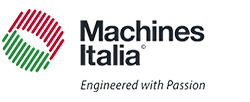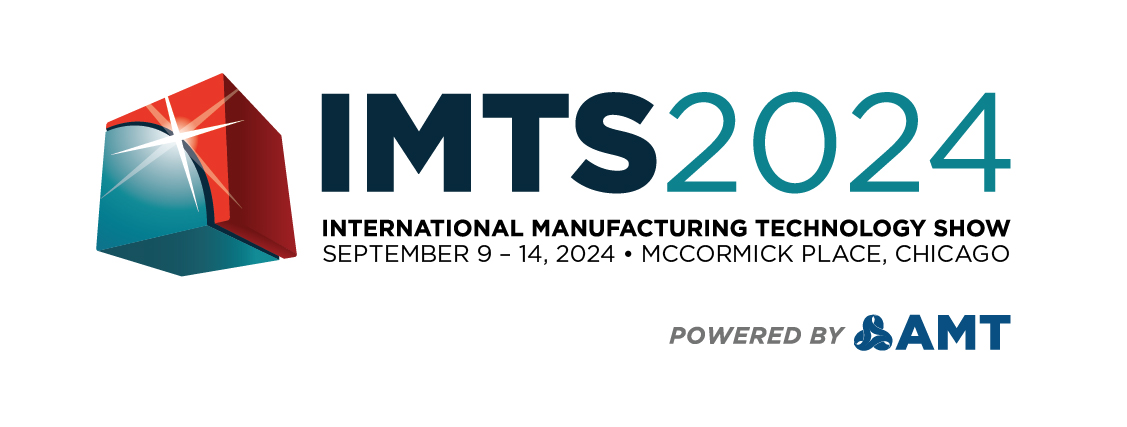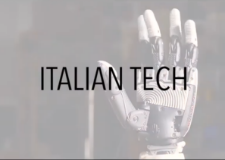Glass Technology Mexico is the professional exhibition of… More
Webinar Waiting for 32.BI-MU - UCIMU: Focus USA
 For the first time in webinar mode, on Tuesday, June 23, the Strategic Marketing Group was held entirely focused on the U.S. market and falling under the initiative "Waiting for 32.BI-MU, BI-MU webinars plus."
For the first time in webinar mode, on Tuesday, June 23, the Strategic Marketing Group was held entirely focused on the U.S. market and falling under the initiative "Waiting for 32.BI-MU, BI-MU webinars plus."With more than 30 participating companies, the video meeting, also open to non-members, was coordinated by UCIMU President Dr. Massimo Carboniero and moderated by Eng. Alberto Nicolai (UCIMU Marketing Management Manager) and began at 3:30 p.m. with greetings and opening remarks by President Carboniero. From the ICE Agency office in Chicago, director Marco Saladini provided the participants with an overview about the current state of our sector and those using it in the U.S., as well as pointed out the main ways of access and the levers to focus on to achieve market advantage. Dr. Stefania Pigozzi, head of UCIMU's Center for Studies and Business Culture, showed the macroeconomic and sectoral context of reference while also mentioning the outlook for machine tools in the coming quarters in the States, while Dr. Vincenzo Lettieri of the Association's Marketing Department brought to the audience's attention the trends of two of the main outlet markets for our companies in the country, namely automotive and aerospace.
The International Law Firm Gardenal Camatel Montana(gardenal[at] gardenal.it), with attorneys Gardenal, Lo Piccolo and Montana, as we will see in more detail below, discussed financial support to companies granted by the U.S. government in these months of lockdown and the various issues related to direct presence on U.S. soil. Before the Q&A session and the conclusion of the work with President Carboniero, Eng. Giovanni Zacco, market development manager of BLM Group, with an interesting presentation shared with the more than 50 participants, the experience of the group in the U.S. where they have been present for years with their own subsidiary.
President Carboniero, after greeting the participants and speakers and thanking them for their participation, stressed the importance of the video meeting as a moment of shared analysis of what is the most important outlet market for our machinery, especially in this pandemic phase. With a GDP of nearly $20 trillion in 2019, or 25 percent of the world's GDP, the United States is the second largest consumer of machine tools after China and the second largest importer, also after China. Italy is, as of 2019, the country's third largest supplier with 421 million in exports, after Japan (1.6 billion) and Germany (915 million).
The trend remained positive during the first quarter of 2020. In fact, the U.S. was the only country where our export performance improved on 2019, compared to the rest of the world. The current situation will clearly result in slowdowns for late 2020 that will result in a rebound in 2021. Government and Fed are providing important support to businesses and households in the country, and this is a crucial aspect for the future.
Regarding trade shows, the Chairman mentioned the cancellation of IMTS, scheduled for September this year, and the confirmation of BIMU, at fieramilano from October 14 to 17. On this issue, the President briefly shared with the participants the discussion he had with the now former CEO of Fieramilano, Dr. Curci, during the last Board of Directors meeting of the Association, who reassured about the measures put in place by the structure for the safe organization of events.
Director Saladini, in a three-part presentation (trends, access and ICE services), told participants about the positive Purchasing Manager Index data for China, the U.S., Italy, Japan and Germany as of June 2020. According to data from AMT (the Association for Manufacturing Technology), as of April 2020, U.S. orders were down 39 percent on 2019 to $226 million. The magnitude of the decrease was larger than in the Great Recession of 1929-30. However, a slight uptick in orders was noted in May, particularly in automotive and aerospace. Also according to AMT, which bases its analysis on Oxford Economics data, in 2020 machine tool orders will close at -50 percent over 2019 but in 2021 the rebound should be 84 percent.
Regarding automotive, the North American market could end the year with a sales decline of about 27%, according to IHS Markit. Final demand plummeted from 17.1 million to 13.6 million vehicles compared to 2019. Risks and uncertainties related to the pandemic are weighing heavily, particularly with regard to store hours and travel restrictions. The industry will need to move forward with structural cost cuts and new investments in critical new technologies such as electric and/or autonomous vehicles, but these could slow down compared to plan.
Regarding aerospace, Director Saladini reported that estimates currently outline a scenario that is not positive and will only recover between 2022 and 2023. With regard to construction, considering that on the industrial side the contribution is negative, it is believed that activity will decline by 7 percent this year while, moving by sector, electro-medical will likely show a less negative performance.
Dwelling more on competitive aspects, Director Saladini stressed how product and process innovation continues to be the main competitive factor in the States. The areas with the highest specialization in machine tool manufacturing (info updated to 2016) are Erie, Traverse City, Detroit, Dayton, and Fort Wayne, while the areas with the highest number of patents created are Michigan, Ohio, Illinois, Minnesota, Wisconsin, Indiana, California, New York, and Boston.
If in Italy, the business environment is strongly characterized by the presence of microenterprises, in the U.S. there are many SMEs that demand from their suppliers: originality of the product and technology in step with the times, competitive price, presence of a warehouse and logistics in the country as well as service.
Before concluding, the director dwelt on the services offered by ICE such as the search for clients and partners in the U.S., the organization of business tours and meetings and all promotional activities in the country. Brief excursus also on the activities organized and initiated with UCIMU.
The country most affected by covid in the world in terms of infected and victims but also a country that is suffering, like the others, due to the pandemic, a drop in GDP, an increase in unemployment and an increase in public deficit. With this in mind, Dr. Pigozzi began her presentation by showing participants how, starting in the second quarter of 2021, GDP and employment levels are expected to return to positive territory along with investment and industrial production.
In 2019, the U.S. emerged as the world's fifth largest producer of machine tools, seventh largest exporter, second largest importer and second largest consumer. Between 2010 and 2019, the ratio of investment to consumption in the country decreased, but the latter and production, again obviously of machine tools, increased, with imports certainly rising over the same period considered. Italy, as the President also mentioned in the opening, is the country's third largest supplier after Japan and Germany and before South Korea, Taiwan and Switzerland. In 2010 (however, we consider the crisis period) we were exporting about 140 million euros of machinery and in 2019 we reached 421 million euros. We mainly export presses, bending machines and shears.
In the current year, the market is expected to fall by 41 percent and then rise in 2021 by 44 percent and fall in 2022 to 6 percent. Regarding consumption, orders in the market fell by 38 percent in April compared to the same period in 2019, and an overall decline of 28 percent is expected by the end of the year.
Dr. Lettieri from the Association's Marketing Department gave his presentation starting from a statement by President Carboniero, reported in the UCIMU press release of October 18, 2019, in which he commented on orders as of the third quarter of 2019: -19.3% from Italy and -14% from abroad. In doing so, the aim was to draw participants' attention to the end of the industry's expansionary cycle at the end of 2019, while highlighting how in that frame the performance of the U.S. was extraordinarily positive along with the after-sale environment. Then highlighting the state of the art of US manufacturing with data from the Institute for Supply Management in May 2020 (43.1 percent, up 1.6 percent on April 2020), he showed the current scenario of automotive and aerospace. Regarding the former, mentioning the problems encountered with the restriction of mobility on the supply chain, he mentioned how the demand shock in the States is not currently the subject of ad hoc measures by the U.S. government to stimulate it through specific incentives. With the reduction in turnover and the presence of significant fixed costs, companies in the sector have cushioned the financial strain thanks to the support of the government, which promptly stepped in with cash injections that, however, brought the sector's total debt to $1.1 trillion, or 3.4 times ebitda (at the end of 2019, the figure was 3 times ebitda). Consolidation and online (with strong growth on Wall Street of two start-ups such as Carvana and Vroom) are two trends to watch out for in the future as well as the new costs that companies will have to bear to comply with the new requirements under the USMCA that replaced NAFTA.
Regarding aerospace, military spending, despite the period, increased in 2019 representing an important segment in the sector in contrast to the commercial side, which was found to be down due to the problems experienced by Boeing's 737 max. The U.S. remains the undisputed R&D leader in the sector, and the coming period will likely see a process of consolidation in the sector.
The segment of ns greatest interest, aircraft, engines and related parts, had revenues in 2019 of about $240 billion, derived largely from production for export.
Lawyer Gardenal, after a brief presentation of the firm and the services, including extrajudicial and tax services, that they have been offering for 30 years to their clients in the U.S. (they are active in New York with an office as well as in Milan), reported that they are on the short list of advisors to the U.S. government and in contact with non-speculative funds that are willing to finance, through equity, the growth of Italian companies in the United States. After a brief excursus about the good U.S. stock market performance, the lawyer traced the evolution of U.S. tax reform culminating in a current flat tax to the extent of 21% reiterating that this current one could be an interesting time to approach the U.S. with a specific office.
Mr. Lo Piccolo focused his speech by describing the details of the Paycheck Protection Program Loans, expiring on June 30, put in place to financially support companies operating in the U.S. even under foreign control with the aim of maintaining the level of employment. The resources made available are approx. $500 billion and can be used for salaries, rents, interest on mortgages and utilities. Companies with up to 500 employees (including sole proprietorships and self-employed persons) operating as early as February 2020 are eligible. The resources borrowed through the PPP Loans can be transformed into grants if they will be used for personnel costs, interest on mortgages, rent and utilities (at least 75 percent of the amount must have been used for personnel and 25 percent for the remaining items). The loan can be used for costs incurred from Feb. 15, 2020 to June 30, 2020 (deadline for accessing funds). The term of the line of credit made available by the government is two years (repayment of the debt, if the constraints for the forgivable fund are not met and once the two years are exceeded, must be made within 10 years at a negotiable rate of up to a maximum of 4 percent) and the interest rate is 1 percent per annum (the first six months no interest is paid). The maximum amount that can be obtained is 10 million euros. The amount that can be requested, meeting this threshold, is 250% of the total costs in salaries, utilities, interest and rent. It is possible to turn the loan received into a grant if in the first eight weeks following the disbursement of the loan I have complied, as a company, with the conditions of the PPP Loans (no cuts in staff or salaries). No personal guarantees or collateral are required. Neither the government nor the lenders will charge fees to small businesses. The loan is granted immediately and then an audit will be conducted to verify the requirements, failing which the loan will be repaid immediately. Lawyer Montana, at the conclusion of the firm's talk, referred to their support with respect to issues on contracting, personnel and company formation in the States.
Eng. Zacco of BLM Group, in the initial phase of his presentation, described the group, founded in 1960 and active in the production of machine tools for tube processing with more than 700 employees and headquartered in Cantù (Como, Italy). Strongly internationalized, the group (BLM, Adige Sys and Adige) has 177 technicians worldwide who can solve the problems of the company's customers within 48 hours 8.7 times out of 10. The group has grown significantly over the past few years. In 2014, in fact, the company's turnover was 186 million euros while in 2018 it was 342 million. With great focus on innovation, the group serves the automotive, aerospace, furniture, fitness equipment world and so on. They have been present for 19 years with a subsidiary in Michigan where they do not do production (it remains in Italy) but assemble, among other things, based on the needs of American customers what is produced in Italy. With more than 100 employees, 51 of whom are skilled technicians, the subsidiary had sales in 2018 of $103 million. Between the U.S. and Canada, 925 machines were installed. Comparing with the branch manager, Eng. Zacco reported that what turns out to be fundamental to operate well in the U.S. and compete as a leading player is service. Referring to the experience of the business network in India aimed at promotion, he suggested that the same formula could be evaluated, this time service-oriented, to help companies be more competitive in the U.S. market.

BLM Group in its subsidiary has a Solution Center that serves as a showroom of its technology for U.S. customers and a set of customer care activities to which most of the subsidiary's resources are devoted.
Eng. Zacco shared his views on the technological superiority of Europe over the U.S. at the production system level, highlighting how, however, the same cannot be said on the digital/software level where American strength is unquestionable. BLM Group has therefore initiated synergies in this regard by making its products increasingly innovative and able to intercept demand in the country.
Regarding the current situation, he reported that there is no reduction in the market at the moment. The first two quarters, in the wake of the good performance in 2019, were positive but he expects a reduction for the second half of the year. In the U.S., according to his view, there is moderate optimism mainly due to the concrete support provided by the government to those who lose their jobs, the injection of liquidity to companies, and so on.
BLM has been a beneficiary of this latest measure taken by the government reporting that the documentation to be attached to the application (processed in six days with the transfer) is detailed and substantial.
On automotive, he warned about the risk of people's changing habits, especially now with the push for smartworking. For aerospace, while it is currently at a standstill, he believes that with the recovery it will be able to pick up. Furniture and medical continuing to remain on a positive trajectory.
At the conclusion of his speech, Eng. Zacco wanted to share with the participants a reflection with a political slant being that this is the presidential year in the US. According to the history of U.S. elections, it has never happened that Republicans, at the head of the government, would lead the country to elections with a shrinking economy, and this is a fact to be emphasized.
The following is what happened during the initiative's Q&A session:
Dr. Silvio Petitti of SMW Autoblok: Having a subsidiary in the US, we applied for, and received, a first tranche of the PPP. Is there a possibility that the government, after June 30, will continue with business aid?
Director Saladini: There is nothing confirmed to that effect, so elements to give an answer are not there. It could be, picking up on Eng. Zacco's conclusion, that the government will not want to go to elections with enterprises in crisis and so will comply. Report webinar by the Italian Embassy on the US post covid topic (25/6).
Adv. Gardenal: Politically, the pandemic has united Democrats and Republicans in defining the measures to be taken. It is not certain that this will continue but nothing is impossible at this time.
Eng. Nicolai UCIMU addressing Eng. Zacco: We saw that in 2019 the U.S. market performed very well compared to the rest of the world. Has the BLM subsidiary in the country benefited from this? In 2018 we saw that the turnover achieved was 100 million euros. In 2019, on the other hand?
Eng. Zacco: The US is focus market for us. We always manage to exceed budgets. The LaserTube world has taken hold in the country, so it is difficult to say how much of our results can be attributed to market performance and how much to product performance. For the next few years, however, we anticipate growth in the market.
Dr. Giacometti Mep Spa shared his experience: North America represents our first market. We have taken advantage of the PPP, which was initially 80 percent grant while now it is down to 75 percent. The company is continuing well (several orders came in in May and June) thanks to investments in infrastructure bringing the portfolio to be 85 percent of the pre-covid era. We started operating in the U.S. with an acquisition, and this is a good time for companies that want to set up in the country. The US market, in general, has been shrinking, at least since the end of 2018.
At the conclusion of the proceedings, President Carboniero, thanking the speakers and participants, emphasized the importance of service and urged to consider M&A strategies in the U.S. Thus placing attention on the fact that it is still a manufacturing country. He gave strength to the concept of the technological lag behind the EU on the production side emphasizing that another issue is the criticality of finding competent personnel. In conclusion, he said that UCIMU will continue to follow the U.S. market, which is essential for Italian companies in the sector, announcing new initiatives for the near future.
For more information on the initiative contact chicago [at] ice.it (subject: Machines Italia E-newsletter)
Recent News
POSTED ON

























